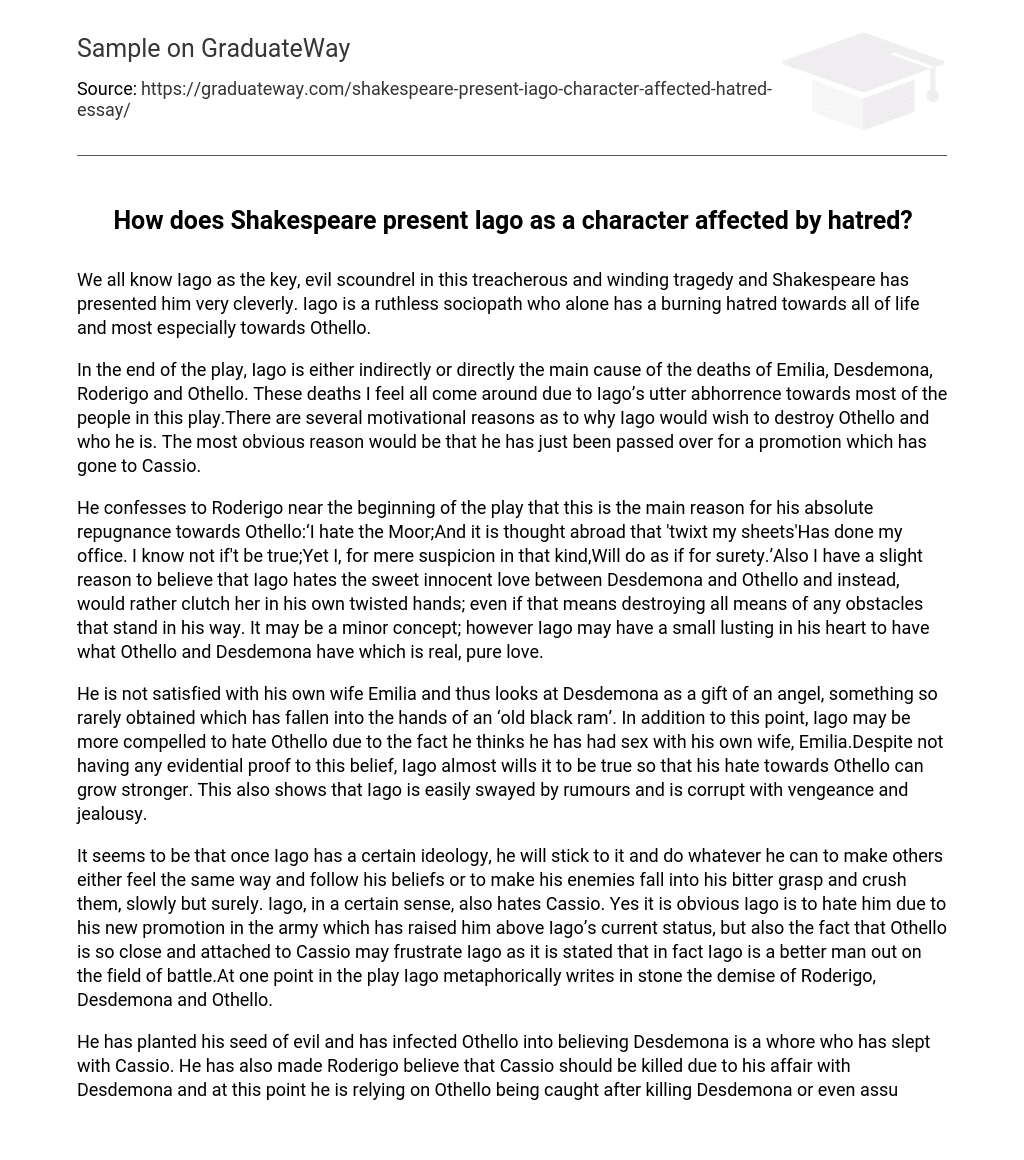In the treacherous and winding tragedy, Shakespeare cleverly presents Iago as the key and evil scoundrel. Iago, a ruthless sociopath, holds a burning hatred towards all of life, particularly towards Othello.
Ultimately, Iago is responsible for the deaths of Emilia, Desdemona, Roderigo, and Othello either directly or indirectly. It is evident that Iago despises most of the people involved in this play, which ultimately leads to their demise. There are various motivations behind Iago’s desire to destroy Othello and his reputation. The primary reason being that Iago feels resentment after being overlooked for a promotion, which was given to Cassio.
At the beginning of the play, he admits to Roderigo that his intense dislike for Othello stems from a rumor that suggests Othello has had an affair with his wife: “I hate the Moor; And it is thought abroad that ‘twixt my sheets Has done my office. I know not if’t be true; Yet I, for mere suspicion in that kind, Will do as if for surety.” Additionally, I suspect that Iago harbors animosity towards the genuine and innocent love shared between Desdemona and Othello and would rather possess her himself, even if it means eliminating any obstacles in his path. Although it may be a minor motive, Iago desires to have what Othello and Desdemona possess – true, untainted love.
He is dissatisfied with his own wife Emilia and therefore sees Desdemona as a rare gift, something that has fallen into the hands of an ‘old black ram’. Moreover, Iago may have a stronger reason to hate Othello because he believes that Othello has slept with his own wife, Emilia. Even though there is no evidence to support this belief, Iago wants it to be true in order to fuel his hatred towards Othello. This also demonstrates that Iago is easily influenced by gossip and consumed by revenge and jealousy.
Iago is determinedly devoted to his ideology and will do whatever it takes to persuade others to share his beliefs or destroy those he considers enemies. His animosity towards Cassio stems not only from Cassio’s recent promotion in the army, which surpasses Iago’s own status, but also because of the close bond between Cassio and Othello. It is mentioned that Iago is actually a skilled soldier in battle, further fueling his frustration. At one point in the play, Iago metaphorically seals the destinies of Roderigo, Desdemona, and Othello.
The text suggests that Iago has successfully manipulated Othello, planting seeds of doubt and convincing him that Desdemona is unfaithful. He has also influenced Roderigo, persuading him to believe that Cassio deserves to be killed for his supposed affair with Desdemona. Iago’s plan relies on Othello either getting caught after killing Desdemona or succumbing to despair and taking his own life. Shakespeare’s portrayal of Iago aims to depict him not as a man driven by hatred, but as a demonic figure serving Satan himself. Iago embodies the essence of hatred, jealousy, and detestation present in all beings.





